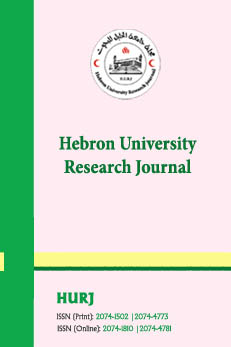Hebron University Research Journal (HURJ): B- (Humanities)
Population growth and its impact on sustainable social development in Suez City: a geographical study
- Author: Elsayed Mahmoud
- ISBN: 2074-4781
- DOI: https://doi.org/10.60138/5119220244
- N°: 0
- Year: 2024
-
Link:
 Population growth and its impact on sustainable social development in Suez City: a geographical study
Population growth and its impact on sustainable social development in Suez City: a geographical study
Review
Abstract:
The rapid population increase is considered as one of the most important problems facing cities, and if population growth in the past threatened them to starve and reduce food due to the increasing number of population and the uneven increase in production, today it threatens all dimensions of sustainable development (environmental, economic and social), and the current study aims to determine the impact of Population growth on sustainable social development in Suez City. The study used the historical method, contrast, spatial similarity, causal influence and comparative. The study reached several results, the most important of which are: that the population growth rate in the city of Suez was higher than the rate of sustainable social development, due to the increase in population numbers resulting from natural increase and immigration from other governorates, which led to a decline in the indicators of sustainable social development in the city from international standards. In addition to the standards of developing countries and the decline of some indicators of social development in the city from previous periods as a result of the increase in the population at rates higher than the increase in the growth of educational and health services.
The study recommended that: concerted efforts should be made to reduce population growth, school dropout rates and mortality rates, and to develop a plan to increase educational and health services in accordance with international standards or at least the standards of developing countries and in proportion to the population, keenness to spread and increase health awareness, and developing a plan to provide the current and future needs of the population based on the city’s future population estimates.





